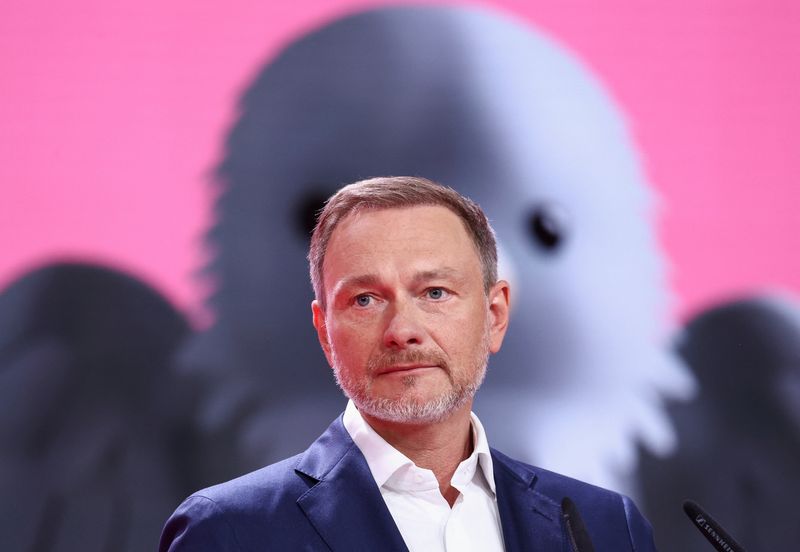BERLIN (Reuters) -The German ministries' spending wishes for 2025 exceed the specifications of Finance Minister Christian Lindner by around 20 billion euros ($21.53 billion), government sources told Reuters on Tuesday.
The leaders of the three parties in Germany's coalition government agreed on Tuesday that a planned pension reform package will be approved by the cabinet in May, Chancellor Olaf Scholz said.
Lindner, leader of the pro-business Free Democratic Party (FDP), earlier had abruptly blocked having the pension reform package reach the cabinet for approval on Wednesday because he argued that the spending demands of the Social Democrats' labour ministry were excessive, a source said on Tuesday, confirming earlier media reports.
Lindner dropped that move in Tuesday's meeting, allowing the package to come before the cabinet for approval sometime later in May.
Lindner, Scholz of the Social Democratic Party, and Economy Minister Robert Habeck, from the Greens, met on Tuesday to negotiate on the budget.
Labour Minister Hubertus Heil alone is demanding 7.6 billion euros more than Lindner wants to grant him, government sources told Reuters later on Tuesday, as previously reported by German newspaper Handelsblatt.
Due to the high spending requests of the ministries for the 2025 budget, current plans must be internally discussed within the government, a spokesperson of the finance ministry said.
Lindner said on Monday that a handful of ministries had excessive spending wishes, without naming them.
These include the Green-led foreign ministry and family affairs ministry, as well as the ministries for development, defence, interior, labour and families, all led by the SPD, according to government sources.
The issue had threatened more wrangling in Germany's three-way coalition.
Habeck had urged ministers to pull together.
"Everyone has to stop playing poker now and talk to each other very quickly," he told the ntv tv channel, warning colleagues against playing to their own base and the media.
The pension reform to be approved is to address a system that has come under increasing pressure, with a widening gap between salaries and pensions as millions of "baby boomers", born in the 1950s to the mid-1960s, retire.

The government plans to introduce an additional pension scheme investing in capital markets to ensure pensions remain linked to rising wages. The aim is to guarantee a pension level of at least 48% of an average wage until the end of the 2030s.
($1 = 0.9289 euros)